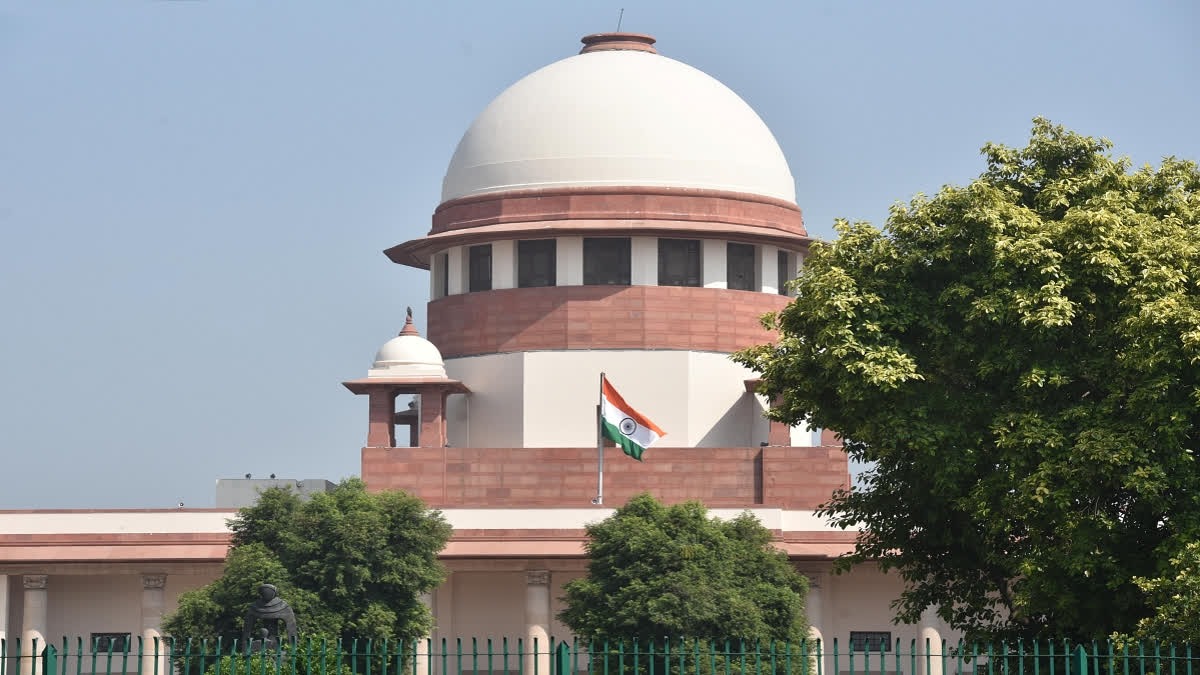New Delhi: The Supreme Court on Thursday said one of the basic features of fiscal federalism is that both the Union government and the state governments ought to have adequate fiscal resources to discharge their constitutional responsibilities.
The apex court stressed that any dilution in the taxing powers of the state legislatures will necessarily impact their ability to raise revenues, which in turn will impede their ability to deliver welfare schemes and services to the people.
By an 8-1 judgment, the apex court declared that states have legislative competence to levy taxes on minerals and mineral-bearing lands. The CJI authored the majority view, supported by Justices Hrishikesh Roy, Abhay S Oka, JB Pardiwala, Manoj Misra, Ujjal Bhuyan, Satish Chandra Sharma, and Augustine George Masih. Justice B V Nagarathna dissented, holding that the Centre possessed the exclusive right to tax mineral rights in the country.
The majority bench said that federalism is one of the basic features of the Indian Constitution and federalism embodies a division of powers between the units of the federation, that is, the Union and the states.
"Indian federalism is defined as asymmetric because it tilts towards the Centre, producing a strong Central Government. Yet, it has not necessarily resulted in weak State governments. The Indian States are sovereigns within the legislative competence assigned to them. The delicate balance of power is secured by constitutional courts by interpreting the scheme of distribution of powers", said the majority judgment authored by CJI.
The bench said in a federal form of government, each federal unit should be able to perform its core constitutional functions with a certain degree of independence. "The Constitution has to be interpreted in a manner which does not dilute the federal character of our constitutional scheme. The effort of the constitutional court should be to ensure that State legislatures are not subordinated to the Union in the areas exclusively reserved for them," it said.
The apex court said that in Union of India vs Mohit Minerals Private Limited, it recognised fiscal federalism as an important attribute of Indian federalism. The bench stressed that fiscal federalism is concerned with the assignment of functions to different levels of government and the devolution of appropriate fiscal instruments to carry out these functions.
It said that in India, these fiscal instruments typically take the form of tax and debt instruments. Similar to the division of constitutional powers and responsibilities, the Constitution has also shared tax-raising responsibilities between the Union and the states, it added.
The bench said the Constitution is cognizant of the imbalance between resources at the disposal of states and the Union and the Constitution remedies the imbalance by way of intergovernmental distribution and grants.
"One of the basic features of fiscal federalism is that both the Union government and the State governments ought to have adequate fiscal resources to discharge their constitutional responsibilities. List I and List II of the Seventh Schedule contain various subject matters under which Parliament and the State legislatures can respectively levy taxes," said the bench.
It stressed that the purpose of such a distribution is to entrust adequate fiscal powers with the legislatures to raise revenues to meet the growing fiscal expenditures and rein in the fiscal deficit.
The bench said, for instance, the state legislatures can tax the consumption or sale of electricity. "Although electricity is an important raw material for many industries, the States are allowed to determine the rates of the levy by taking into consideration the particular needs of the State," it noted.
The apex court said by laying down a heterogeneous distribution of legislative powers, the Constitution underscores that the asymmetry of our federation is an integral aspect of our federal form of governance.
"Any dilution in the taxing powers of the State legislatures will necessarily impact their ability to raise revenues, which in turn will impede their ability to deliver welfare schemes and services to the people. The ability of the State Governments to invest in physical infrastructure, health, education, human capacity, and research and development is directly co-related to the raising of government revenues. Constitutional courts have to be cognizant of this context while adjudicating on issues affecting the taxing powers of the State legislatures", said the apex court.
The apex court made these observations in judgment on a batch of 86 appeals filed by different state governments, mining companies and public sector undertakings. The court delivered the judgment on a contentious issue -- whether royalties on minerals constitute a tax under the Mines and Minerals (Development and Regulation) (MMDR) Act 1957. It also examined whether only the Centre can levy such exactions, or if state governments possess the authority to impose levies on mineral-bearing land within their territories.



